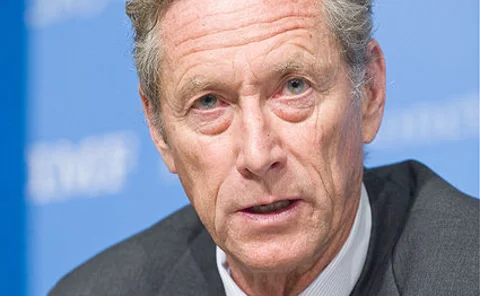Macro-prudential policy
Central bank says macro-pru tools ‘crucial’ in Turkey
With the threat of a ‘spillover from global uncertainty to inflation’ in 2015, the Central Bank of Turkey highlights the importance of macro-prudential defences
Irish research finds macro-pru tools have ‘greater impact’ on first-time buyers
Economic letter published by Central Bank of Ireland explores impact of loan-to-value and loan-to-income ratios on different groups within residential property market
Brainard says Federal Reserve monetary policy can ‘lean against the wind’
FOMC member says limited range of macro-prudential tools means Fed is more likely than some other central banks to use monetary policy for financial stability purposes – but there are risks
Constâncio wants to ‘broaden’ European macro-prudential toolkit
ECB vice-president wants a broader macro-prudential toolkit to help smooth the financial cycle, including new instruments for the shadow banking sector
Bundesbank explores macro-prudential framework
Claudia Buch says the central bank is 'looking into' what needs to be done to provide a legal basis for macro-prudential policy; Bundesbank releases financial stability review
BoE to challenge orthodoxy with research ‘revolution’
More combative approach to Bank of England’s research will see economists challenge orthodoxy – including the central bank’s own policies – as often as they support it, says Andrew Haldane
Lautenschläger highlights ‘unbelievable heterogeneity' in eurozone housing markets
ECB board member also has ‘Christmas wish list' with instruments that will complete eurozone's macro-prudential toolkit
BoJ’s Sato sees macro-prudential comms issue
Policy board member identifies three issues surrounding the implementation of macro-prudential measures – timing, communication and spillovers
RBNZ not ready to ease LVR speed limit
Graeme Wheeler welcomes falling house price inflation, but is wary of a potential ‘resurgence’ on the back of strong immigration flows; keeps speed limit in place for now
ESRB report studies allocation of macro-prudential powers
Report from advisory scientific committee says coordinating monetary and macro-prudential policies is easier if the powers sit within a single institution, often the central bank
Haldane laments poor grasp of international monetary system
BoE chief economist says regulators have paid insufficient heed to the global financial system as a whole; wants ‘Star Trek chair’ from which to survey the landscape
Central Bank of Ireland proposes lending restrictions
Irish central bank proposes three ‘speed limits’ on banks’ mortgage lending, as it looks to create a ‘stable and well-functioning’ market
IMF's Blanchard warns macro-prudential tools ‘may not be up to the task'
Chief economist outlines benefits of debt-financed infrastructure projects in the eurozone at opening of IMF and World Bank annual meeting
Polish paper examines impact of foreign currency loans
Foreign currency loans restrict the transmission of monetary policy to the real economy but do not have a 'significant' impact on efficacy of macro-prudential measures, paper finds
Bank of England asks for new tools to curb mortgage lending
Financial Policy Committee recommends it be equipped with controls on loan-to-value and debt-to-income ratios; Mark Carney says Help to Buy scheme does not pose ‘material risks’
NBP warns ECB-Fed mismatch may impair policy-making
Polish central bank says divergence of European and US monetary policy is likely to create problems for policy-makers elsewhere, especially in small, open economies
RBA discussing steps to cool ‘unbalanced’ housing market
Australia’s financial regulators are discussing whether ‘additional steps’ are necessary to address the disproportionate increase in credit to investors in the housing market
BIS warns of risks related to dollar-denominated corporate debt in EMs
Hyun Shin says cross-border bank lending has seen first ‘substantial increase for some time', while Claudio Borio cautions against ‘exceptionally low' volatility in financial markets
New York Fed report reviews risk-return trade-off between financial conditions and financial stability
Paper focuses on vulnerabilities affecting trade-off, including pricing of risk and leverage; discusses how macro-pru policies can counteract vulnerabilities
Higher capital requirements lead to lower lending, study by Calomiris finds
Paper published today by the Bank of England finds ‘little evidence of interaction' between monetary policy and capital requirements; studies their impact on bank lending
IMF calls on Nordics to keep housing markets in check
Article IV reports warn Norges Bank will eventually have to normalise policy rate above inflation target and call for Swedish macro-pru measures targeted at households
EMs evaluate macro-prudential tools in BIS publication
Central bankers across Asia and Europe assess their countries’ efforts to mitigate spillovers from monetary policy in advanced economies in a major BIS publication
China joins Indian calls for better taper co-ordination
People's Bank of China says advanced economy coordination is ‘reasonable and inevitable course of action', joining calls from the Reserve Bank of India for international monetary policy solidarity
Central Bank of Hungary brings in macro-prudential borrowing caps
New caps will limit payment-to-income levels especially on FX loans; central bank hopes one side-effect will be to discourage the informal economy





















